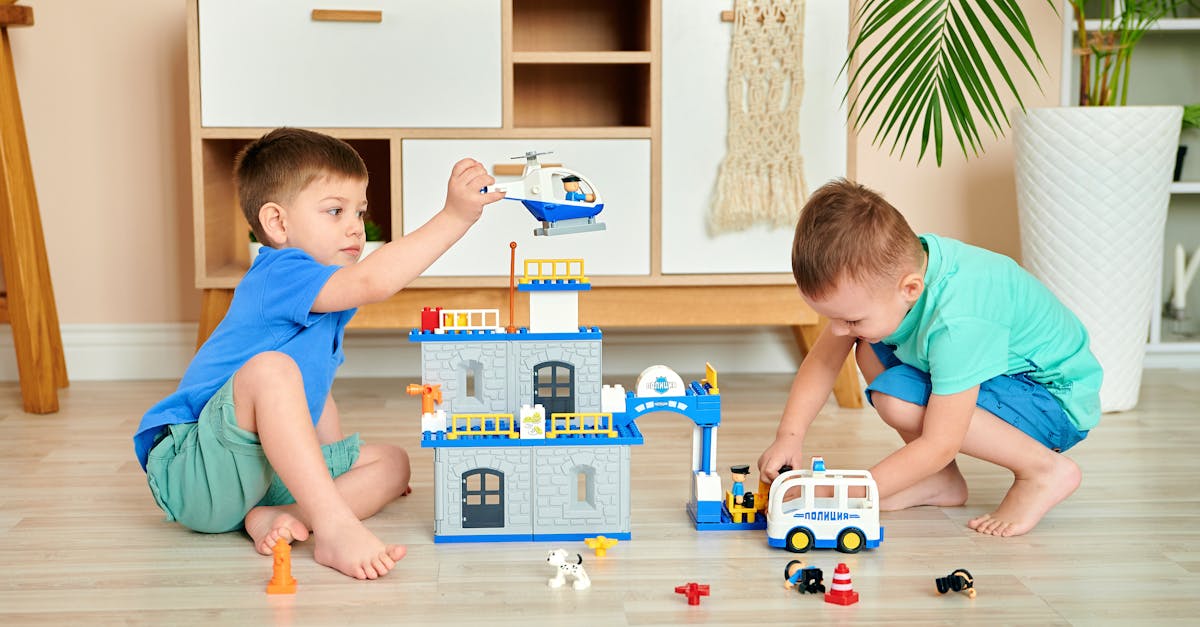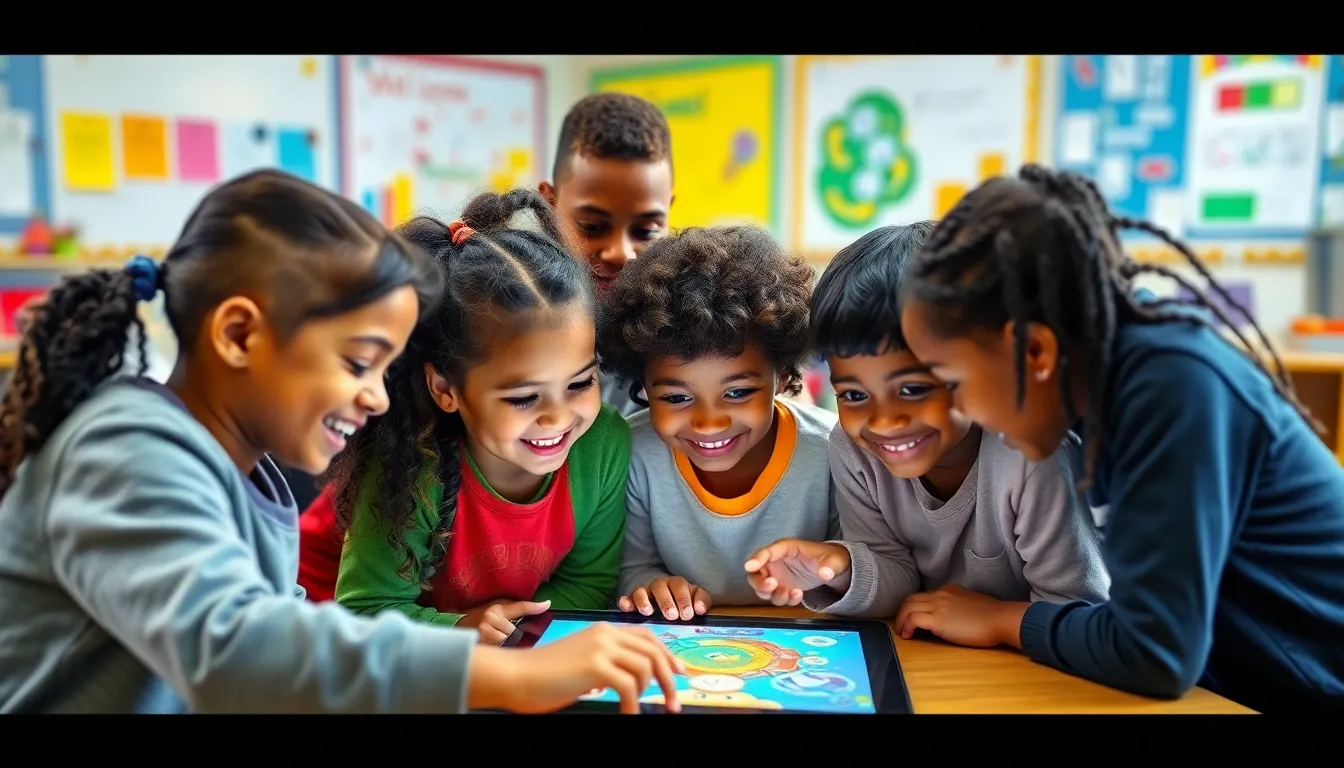Table of Contents
ToggleIn today’s world, parenting has taken flight—literally. Helicopter parenting, where parents hover over their kids like a trusty chopper, might seem like a recipe for success. But what happens when those constant whirring blades create more turbulence than tranquility? As it turns out, kids under the watchful eye of their hovering parents are more likely to face unexpected emotional turbulence, including depression.
Understanding Helicopter Parenting
Helicopter parenting involves excessive involvement in a child’s life. This approach often stems from a desire to protect and guide, but it can have unintended consequences.
Definition and Characteristics
Helicopter parenting describes a style where parents closely monitor and control every aspect of their children’s lives. Parents may hover over activities such as homework, social interactions, and extracurriculars. Common characteristics include constant communication, micromanagement, and a lack of independence granted to the child. This parenting style often displays an overemphasis on achievement and safety, leading to dependency rather than self-sufficiency.
Impact on Child Development
Helicopter parenting negatively affects a child’s emotional and social development. Children raised in such environments often struggle with anxiety and low self-esteem. These kids may lack problem-solving skills and face difficulties in managing stress. Research indicates that dependent parenting styles correlate with higher rates of depression in children. Social skills can also suffer, as opportunities for meaningful interactions get curtailed.
The Link Between Helicopter Parenting and Depression
Helicopter parenting creates significant emotional challenges for children. This style of parenting fosters dependence and limits opportunities for independence.
Psychological Effects on Children
Children subjected to helicopter parenting often experience increased anxiety. They may struggle with low self-esteem due to a lack of autonomy. Difficulties in decision-making and problem-solving appear as they rely on parents for guidance. Additionally, these children might display heightened fear of failure, leading to avoidance behaviors in social settings. Over time, children raised in such environments develop poor coping mechanisms. This creates a cycle where stress and social interactions become increasingly overwhelming. As a result, mental health challenges manifest as symptoms of depression.
Studies and Statistics
Research consistently highlights the correlation between helicopter parenting and depression. A study published in Journal of Child Psychology and Psychiatry noted that approximately 40% of children with helicopter parents displayed signs of depression. Another research conducted by the American Psychological Association found that 35% of kids reported feelings of helplessness when dealing with academic pressures. Children from overly involved parenting environments are more likely to face emotional issues in adolescence. Reports indicate that these children are three times more likely to experience depression compared to peers with greater independence.
Signs of Depression in Kids
Recognizing the signs of depression in children becomes crucial, especially in contexts influenced by helicopter parenting. Several behavioral and emotional symptoms indicate a potential struggle.
Behavioral Symptoms
Changes in behavior often signal underlying depression. Withdrawal from friends or family members indicates social isolation. Decreased interest in previously enjoyed activities showcases a lack of motivation. Frequent changes in sleep patterns, such as insomnia or oversleeping, represent distress. Additionally, irritability or frustration manifests in interactions with siblings or peers. Some children may engage in risky behaviors, as they cope with emotional pain. Research shows that around 40% of children with helicopter parents demonstrate these behavioral signs, reflecting their emotional struggles.
Emotional Symptoms
Emotional indicators provide further insight into a child’s mental health. Persistent sadness or feelings of hopelessness signify serious concerns. Self-esteem issues frequently arise, manifesting as negative self-talk or perceptions of inadequacy. Children may also express anxiety about performance, particularly in social or academic scenarios. Feelings of worthlessness and guilt often contribute to their distress. Many kids deal with increased mood swings, showcasing emotional instability. Elevated rates of depression correspond with these emotional symptoms, emphasizing the importance of addressing mental health.
Strategies for Healthy Parenting
Healthy parenting strategies support independence and emotional well-being in children. Parents can foster growth through various approaches.
Encouraging Independence
Encouraging independence serves as a critical strategy in healthy parenting. Allowing children to make age-appropriate decisions builds confidence. Parents should provide opportunities for kids to solve problems on their own, fostering resilience. Engaging in activities like allowing children to choose their clothing or complete homework independently enhances autonomy. Research shows that children displaying independence experience lower rates of anxiety and depression. Active involvement should shift from controlling to supportive, guiding children rather than micromanaging. These practices cultivate self-reliance, preparing children for real-world challenges.
Effective Communication
Effective communication fosters healthy relationships between parents and children. Open discussions about feelings and experiences allow children to express themselves. Parents can model active listening, validating their children’s emotions and creating a safe environment. Sharing concerns without judgment encourages kids to articulate their thoughts. Promoting problem-solving conversations develops critical thinking skills, aiding emotional regulation. Consistent communication strengthens family bonds, reducing feelings of isolation. Research indicates that children who engage in regular dialogues with their parents report emotional stability and better mental health outcomes. Prioritizing effective communication equips children to navigate life’s challenges confidently.
Helicopter parenting poses significant risks to children’s emotional health. The excessive control and lack of independence can lead to increased anxiety and depression. As children struggle with self-esteem and decision-making, their ability to cope with life’s challenges diminishes.
Recognizing the signs of depression is crucial for parents and caregivers. By fostering independence and engaging in open communication, they can help children develop resilience and confidence. Prioritizing emotional well-being over constant oversight can pave the way for healthier relationships and better mental health outcomes. It’s essential for parents to strike a balance between guidance and allowing children the freedom to grow and learn on their own.







